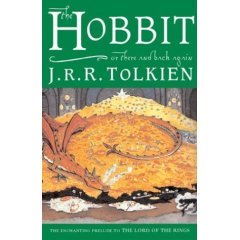 Posted by Jhttp://www.amazon.com/Fiasco-American-Military-Adventure-Iraq/dp/159420103X/sr=8-1/qid=1160707688/ref=pd_bbs_1/102-2114092-4768951?ie=UTF8
Posted by Jhttp://www.amazon.com/Fiasco-American-Military-Adventure-Iraq/dp/159420103X/sr=8-1/qid=1160707688/ref=pd_bbs_1/102-2114092-4768951?ie=UTF8I have mixed feelings about this book. There is one set of clear positives and one of clear negatives. Let me start with the positives since I think for most readers they outweigh the negatives.
Ricks is a great journalist having covered the Pentagon and the military at a boots-on-the-ground level for many years and clearly having won the trust of a large number of US military personnel and Washington brass and players who are willing to have him quote them. He has used that knowledge and those connections to publish a cut-to-the-bone honest assessment of the US royal screw-up that is the occupation of Iraq. He runs from the pre-war politics to the invasion, but then spends a large amount of time on the occupation period. His intro makes it sound like he will give only a cursory review of the pre-war and invasion periods and then focus on the mistakes of the occupation. To his credit, he breaks with his stated plan and does spend a good chunk of time on the pre-war and invasion. I say to his credit because the flubs of those periods were the essential foundation of many of the problems of the occupation. His coverage of the occupation in its own right is no less devastating, the basic theme being that the military and the politicians were not at all prepared to fight an insurgency and committed blunder after blunder, the responsibility for which goes right to the highest levels of the US government. Indeed, Ricks is highly sympathetic of the soldier on the ground, while still giving a realistic set of reviews and critiques of the flubs and relative successes of many of the soldiers from grunts to generals. If you want the details of what the mistakes, tactics, and strategies he reviews are...read the book!
But the negatives...and these really did bother me. He spends a long time talking about how nobody was prepared to fight a counter-insurgency campaign where as he puts it the people (i.e., the Iraqi people) are the "prize" and not the "battleground". He emphasizes over and over how important all the serious thinkers in the military and elsewhere realized it was to win the people to the US side, how those serious thinkers were ignored, and how mistakes were repeatedly made which alienated Iraqis. And yet...Iraqis are almost entirely absent from Ricks' narrative! Just as he accuses many politicians and military men of being wholely insensitive of Iraqi views and needs, he frequently does the same. He hardly quotes any Iraqis and regional sentiment is almost entirely lacking in his overview. For example on the latter, it was mind-boggling how he did an excellent review of the first April 2004 Marine siege of Fallujah from a US military perspective but made zero mention of Al-Jazeera's critical on-the-ground reporting which was decisive in causing the White House to back off halfway through. On the former, Iraqis themselves are rarely quoted, and almost entirely absent are the political dynamics of Iraqi parties, Iraqi public opinion, key Iraqi leaders (beyond his review of the Chalabi shananigans which were more a Washington than Baghdad story), and key Iraqi insurgent groups. Where they are quoted it is clearly only from sources clearly publicly available in the mainstream western english media (fine for a tiny start, wholely inadequate to give an accurate view). Muqtada as-Sadr is occasionally mentioned (usually just as a rabble-rouser, which he may well be, but he and his movement were much more than just that), the Hakim's and SCIRI only a mention or two, the various splits and strains of the Sadrist movement never discussed, you'd never know there was a PUK-KDP divide in Kurdistan, little mention made of the strong Kurdish drives towards securing autonomy leading to possible independence (no judgement needed, just discussion), CPA/US clumsy pushing of sectarian identity and the rapid strains it placed on Iraqi society not really discussed (probably because it seems Ricks himself didn't understand what a monumental flub this was), the dynamics of the ex- (and not so ex-) Baathists and their splits not discussed, public perceptions (as opposed to American perceptions) of the various interim Iraqi leaderships barely discussed, the Qaeda fighters and their relationships cozy and ugly with various elements of Iraqi society not discussed, the rise of organized crime and its connections with insurgents and militias not discussed, and the steady descent into daily terror which the masses of Iraqi civilians in many areas of the country suffer at the hands of everyone from militias to criminals to foreign occupiers is barely touched on. It is a gaping ommision on the part of someone trying to explore the mistakes made in winning the "hearts and minds" of Iraqis.
Also never mentioned is that ultimate of taboo subjects in Washington: Israel. While Israel didn't order the attack on Iraq as conspiracy theorists might push, securing right-wing Israeli security visions was key for the neocons (part of their DNA as far as I'm concerned), and a huge impetus behind the war. And after the invasion, Iraqi and Arab views regarding Israel were and remain a key piece of public opinion and anger, especially given the simultaneously ongoing Palestinian Intifada uprising against the Israeli occupation. That fact alone is incredibly powerful in the Arab world -- there is simply no getting past the fact that every day on the news Arabs are seeing two constantly recurring sets of side-by-side images of the Israeli and American occupations wreaking havoc and drawing the what to them are the obvious conclusions about nefarious conclusion. And finally, Ricks ends the book with a few pages of quite frankly bizarre ruminations about the future of the Arab world which reflect more of a set of neo-con paranoid visions than anything even remotely grounded in fact or understanding of the Arab world's politics. He postulates on fears of the rise of an Islamic Caliphate led by a whacko populist dictator who would threaten world peace. Nothing short of bizarre to anyone who knows the least bit about the Middle East, but equally bizarrely now a common staple at the top levels of (equally badly misinformed) Washington politicians and increasingly everyday Americans.
Ricks is not ill-intentioned here, these topitcs aren't his schtick and one has to pick a focus in writing a book, but they are also such a huge part of the narrative that he is trying to tell that he quite frankly tells a story that has a huge gaping hole in the middle and sometimes veers off into just plain wrong by not even showing the other side of the coin.
All that said, if one keeps the lack of Iraqi and Arab perspective in mind as they read the book, it is highly valuable and good reading nonetheless. If you want to understand the strategic and tactical mistakes (political and military) that have indeed made the US occupation of Iraq an "adventure" and a "fiasco", this is an excellent book to read.




